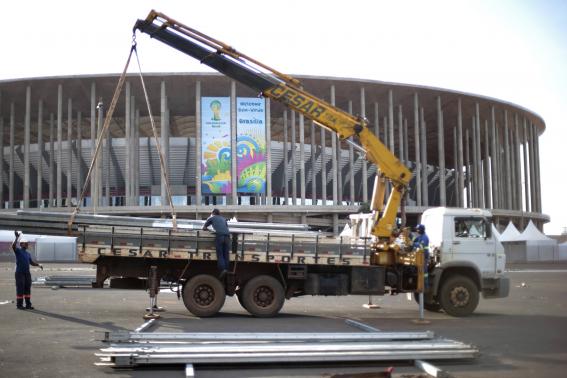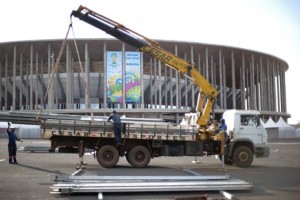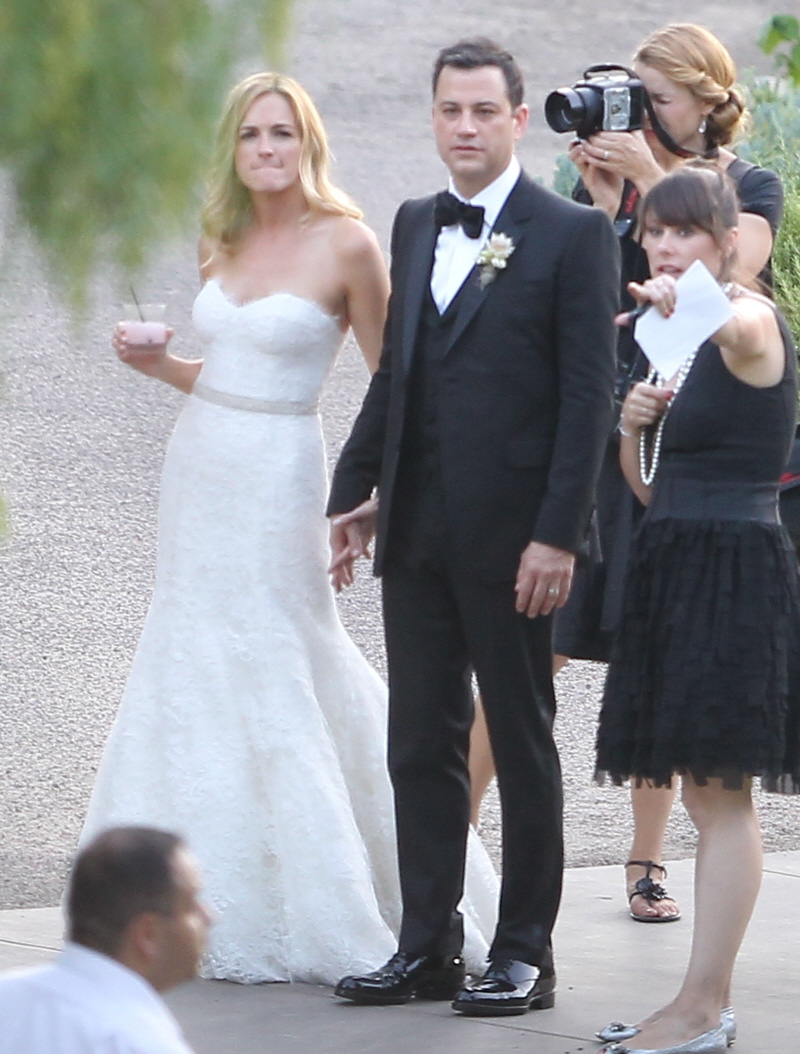When the final whistle blows at the World Cup, Brazilians will be left with some of the world’s costliest soccer stadiums and few of the public transport improvements they were promised.
Long-overdue airport upgrades have been made just in time for the World Cup which starts on June 12 but many of the longer-term investments in rapid transit systems in Brazil’s main cities have been delayed or scrapped.
Seven years have passed since Brazil won the right to host this World Cup. Then-president Luiz Inacio Lula da Silva vowed to use the tournament to shake off underdevelopment and modernize Brazil, a coming out party for an emerging power on the global stage.
While some much-needed investments have been completed, Brazil has fallen far short of what it promised for the Cup and many Brazilians see it as a squandered opportunity regardless of what happens on the pitch.
The signature project in public transportation was to be Latin America’s first bullet train, a $16 billion high-speed rail service linking Rio de Janeiro and Sao Paulo. It never made it off the drawing board.
“The jump to modernity never happened, and the stadiums are a herd of white elephants,” said Gil Castello Branco of Contas Abertas, a private group that monitors government spending.
Brazil has invested 25.8 billion reais ($11.3 billion) in Cup-related infrastructure improvements, a third of which went into building or overhauling stadiums in a dozen host cities.
Four arenas were built in cities that have only third-tier soccer teams and small chance of recovering the investment: Manaus, Natal, Cuiaba and the capital Brasilia, where the magnificent National Stadium cost 1.6 billion reais, more than double the original price tag. City auditors say Brazil’s most costly stadium still needs 300 million reais to finish the exteriors after the World Cup.
The huge sums spent on the stadiums helped fuel massive street protests last year by Brazilians fed up with poor public services and corrupt politicians. They said the money would have been better spent on hospitals, schools and public transport.
The anti-World Cup movement has vowed to stage new protests nationwide aimed at disrupting the 32-nation soccer tournament.
HALF-BAKED PROJECTS
Despite the money thrown at infrastructure improvements, Brazil has only delivered half of the projects it pledged to undertake and many of them are unfinished.
Sinaenco, a lobby group for architecture and engineering firms, says a fifth of the projects were dropped because they could not be delivered on time, while others won’t be finished until after the Cup, such as an overhaul of Rio de Janeiro’s international airport.
The delays in completing works planned for years have also raised concerns about Rio’s ability to stage the Olympic Games in 2016. Some international sports federations have asked to discuss alternative venues.
Sao Paulo’s Arena Corinthians will not have been fully tested when it hosts the opening match between Brazil and Croatia on June 12. Much of the surrounding area still looks like a construction site.
Advances have been made at airports, easing travel between the venues. They could be the World Cup’s most lasting legacy, especially the new terminals in Brasilia and Sao Paulo’s Guarulhos airport.
But only a third of the urban transport projects promised by Lula’s government have been executed, according Contas Abertas.
“Our biggest disappointment is urban mobility. Brazil’s big cities are chaotic. We hoped things would improve with the work done for the World Cup,” said Castello Branco. “This has not happened and we don’t know when these works will be finished.”
Working class Brazilians spend hours each day commuting on dilapidated transport. Their frustration is such that buses and trains sometimes get trashed and even torched by angry commuters when they break down.
It was a bus fare hike that triggered last year’s protests, an outburst of anger that rattled Brazil’s political establishment.
President Dilma Rousseff, who is seeking re-election in October, was greeted by a samba band on Sunday when she opened a rapid bus system linking Rio’s airport to the sprawling coastal district of Barra da Tijuca, but only 22 of its 47 stations will be operational for the World Cup.
Light rail projects and rapid bus corridors have been dropped in a half-dozen cities or not finished in others. Brazil’s priority was stadiums – you can’t play soccer without them – and then airports, a must to accommodate the flood of foreign fans.
As the country fell behind schedule, transportation projects were pushed back and host cities were forced to improvise. One solution has been to declare a school and work holiday on game days to limit traffic congestion and ensure that fans can get to the stadiums. By Anthony Boadle (REUTERS)
(Editing by Todd Benson and Kieran Murray)













